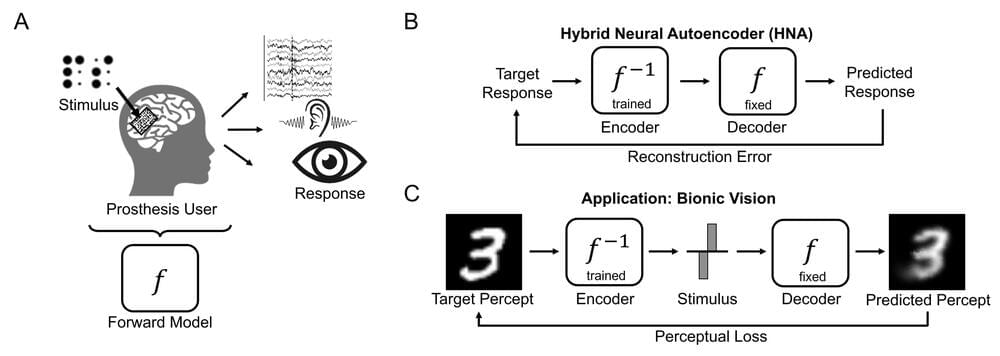New technologies have the potential to greatly simplify the lives of humans, including those of blind individuals. One of the most promising types of tools designed to assist the blind are visual prostheses.
Visual prostheses are medical devices that can be implanted in the brain. These devices could help to restore vision in people affected by different types of blindness. Despite their huge potential, most existing visual prostheses achieved unimpressive results, as the vision they can produce is extremely rudimentary.
A team of researchers a University of California, Santa Barbara recently developed a machine learning model that could significantly enhance the performance of visual prostheses, as well as other sensory neuroprostheses (i.e., devices aimed at restoring lost sensory functions or augmenting human abilities). The model they developed, presented in a paper pre-published on arXiv, is based on the use of a neural autoencoder, a brain-inspired architecture that can discover specific patterns in data and create representations of them.
